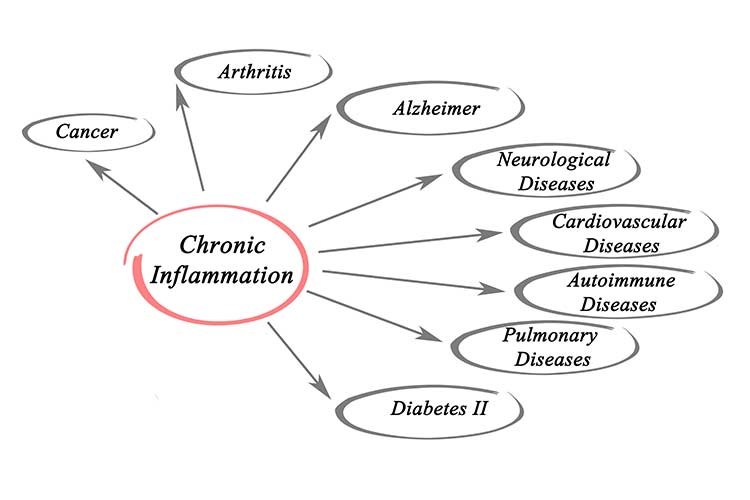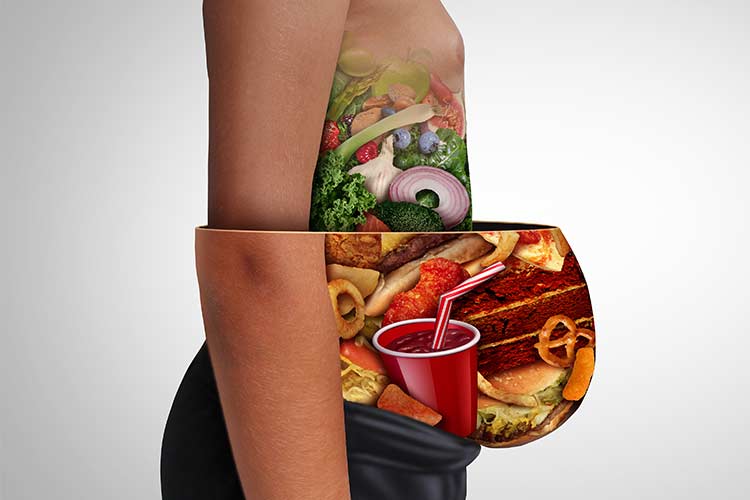Join Our eNewsletter!
Subscribe to our monthly newsletter to receive encouraging advice to help you lead a healthy lifestyle.

What Inflammation Is and What To Do About It
Inflammation has become a buzzword in recent years, but it’s certainly nothing new to the medical field.
It is an overarching term to describe your body’s immune system fighting off toxins that have been introduced to your body but aren’t meant to be there.
The the body spends a lot of energy trying to keep the toxins at bay.
To fight off these invaders, the immune system dispatches inflammatory white blood cells and cytokines (which produce more inflammatory cells). These cells work to protect the affected areas from further harm and begin the process of healing. The result of this response is pain, swelling, bruising, and/or redness, otherwise known as inflammation.
Without the inflammatory response, injuries wouldn’t heal, and infections would worsen to the point of being potentially fatal. For instance, when you cut yourself, inflammatory cells rush to the location of the injury to start the healing process, which is why the area may turn red and start swelling. Without the inflammatory response, the cut would likely become infected, which can lead to complications, including sepsis, an infection of the blood stream.
Types of Inflammation
The type of inflammation described above is called “acute inflammation.” Signs of acute inflammation in the case of an injury are pain or tenderness, flushed or red skin, swelling, and/or a sensation of warmth at the injury site.
Acute inflammation can also occur when the body is fighting off a virus, such as the flu or pneumonia. In this case, the inflammatory response is much the same, but we can’t see it happening because it’s internal. The symptoms we experience during an illness, including sore throat, fever, chills, and fatigue, can be indicative of the inflammatory response.
Since acute inflammation helps fight off infection, protect, and heal, it’s both beneficial and temporary.
Chronic inflammation, on the other hand, is a constant or repetitive inflammatory response. In other words, the immune system continually churns out white blood cells and is unable to turn off the inflammatory response. This is because the body believes it’s under constant attack.
When the inflammatory response becomes chronic, it’s no longer beneficial and is harmful.

Signs of Chronic Inflammation
Although the following signs of inflammation could be attributed to other conditions, if you experience them frequently you may want to consult your physician since chronic inflammation could be a warning sign that something serious is going on.
- Fatigue and/or insomnia
- Muscle aches and joint pain
- Constipation, diarrhea, and acid reflux
- Increased belly fat
- Frequent illness or infection
- Depression and anxiety
What Causes Chronic Inflammation?
While chronic inflammation is associated with certain serious conditions, such as rheumatoid arthritis, Type 2 diabetes, and cancer, it’s currently unclear if the inflammation is caused by the condition or if inflammation plays a part in the development of the condition.

What is known, however, is that the following factors do contribute to chronic inflammation:
- Having an autoimmune disorder, such as lupus, that causes the body to attack healthy tissue
- Being regularly exposed to toxins, such as pollution, industrial chemicals, and even preservatives in food
- Not being properly treated for acute inflammation from an infection or injury
- Consuming excess amounts of alcohol
- Smoking or using tobacco
- Experiencing chronic stress
- Not getting enough quality sleep
- Having a high body mass index (BMI) due to obesity
- Eating a diet high in sugar and fats and low in fiber
- Being sedentary and not getting enough exercise
If you regularly eat processed foods that contain preservatives and chemicals, these toxins can cause normally healthy cells to perforate or die. When one of our cells dies, our immune system naturally goes into fight mode in which it fights off the toxins that enter our cells. Ultra-processed foods can also alter gut bacteria, which can trigger an inflammatory response in the immune system.
How To Reduce Chronic Inflammation
While you may not be able to do much about an autoimmune disorder or pollution, you can make lifestyle changes that, over time, may help reduce inflammation.

- Cut ultra-processed foods from your diet and opt instead for anti-inflammatory foods, such as fruits, vegetables, nuts, and fish.
- Fit at least 20 minutes of low-intensity exercise, such as walking, into your day.
- Get at least seven hours of quality sleep per night.
- Lose weight, especially if you’re carrying excess belly fat.
- Stop smoking and all tobacco use.
- Limit or eliminate your intake of alcoholic beverages.
- Do what you can to alleviate chronic stress.
While there are no tests to measure chronic inflammation, if you suspect you may be experiencing it, your doctor can suggest lifestyle changes and other measures to not only reduce inflammation but also treat the underlying cause.








